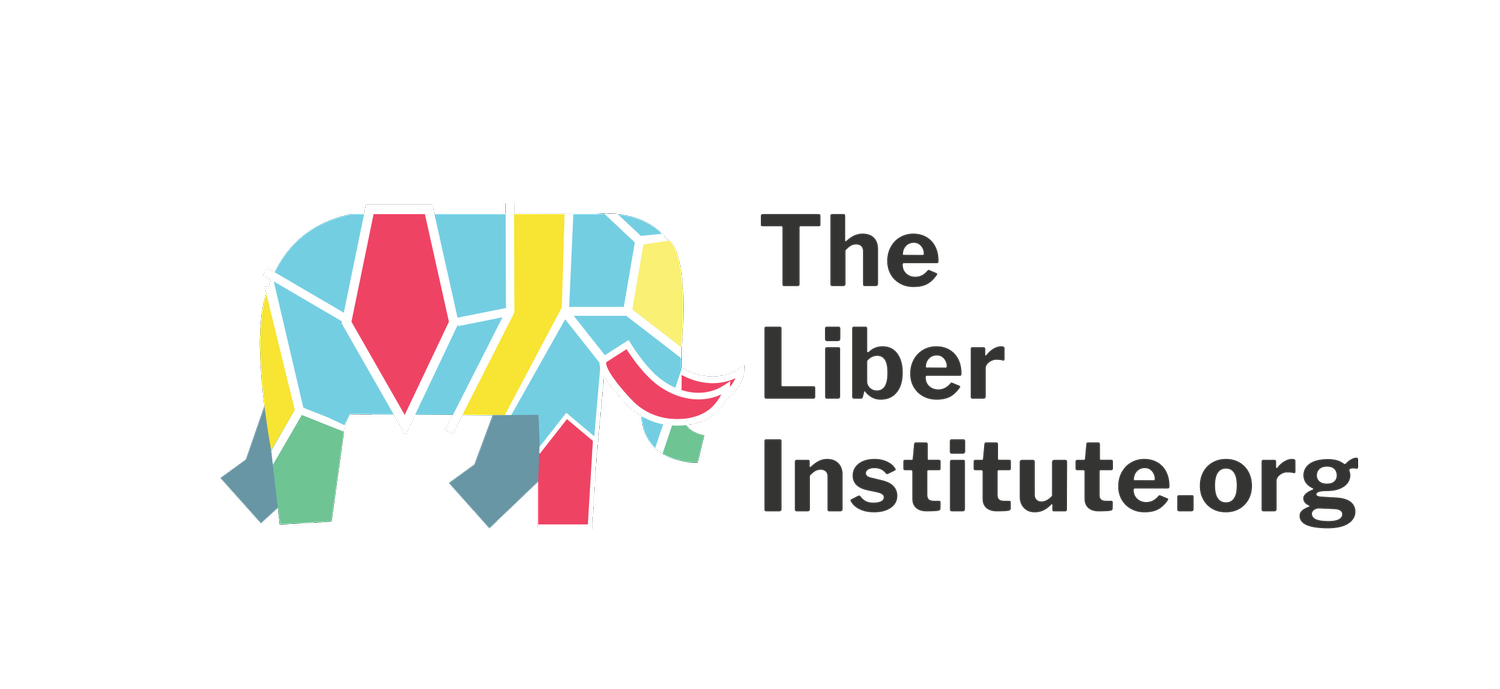“Why Liber?”
A 5-Minute Interview with Jonathan
By Amanda Dahlin
As Data & Design Specialist with The Liber Institute, I spend the majority of my time interviewing our partners, combing through audio files, and searching reports for quantitative and qualitative data to improve the way we serve our relatives. I love all the work I do, but my favorite experiences are those one on one interviews.
In this post, I ask the Founder of The Liber Institute, Jonathan Santos Silva, “Why Liber?”. Working with him for nearly a year, I realized that with all the information I’ve gleaned, I hadn’t heard this story. Here’s what he shared:
A: Where does the name “Liber” come from?
J: Choosing a name for the organization was a drawn-out process, and I grappled with different motivations. My intention to serve Indigenous leaders and educators pushed me to want to honor that with a name and imagery - logo and colors- that resonated with Indigenous peoples. At the same time, I worried that my desire to honor and pay respect to the communities we serve might be misunderstood if it looked like I was appropriating words or images associated with Indigenous cultures. This eventually led to “Liber.”
A: What does Liber mean to you? Why did that feel like the “right” name for the org?
J: Once it became clear that we needed to develop our own name and imagery, I repeatedly returned to my core value: liberation. Liberation is not a one-time thing but an invitation to a lifelong journey. You can spend your whole life on a path, freeing yourself from ideas that don’t serve you, ideas that limit you, and ideas that project false narratives. People may have misguided ideas about who you are as a woman, a person of color, a member of a marginalized group - whatever it may be - and those ideas get sticky and hang on you. Carrying too many of those limiting beliefs will dim your light and desire to pursue the things that make your heart race a little bit. On that level, liberation is a lifelong journey of freeing yourself. There are two major areas that come to mind when I think of liberation: historical and educational.
Historical Liberation
The need for “liberation” is rooted in the history of this country. It was built on the subjugation of at least two peoples: first the decimation of Indigenous communities and the stealing of their land and, second, the theft and enslavement of Black people who were forced to work that stolen land. There are legacies of liberators and freedom fighters in both Indigenous and Black communities, and those efforts are honored when we seek to free ourselves from historical trauma and challenge policies and systems built to justify the historic and present-day mistreatment of Indigenous and Black people.
Educational Liberation
In addition to our history, we have a present-day reality of inequity in schools that makes the case for liberation. The education reform movement helped to bring into white spaces the stories of separate and unequal schooling being perpetuated on Black and Brown children that Black and Brown parents and educators have long known to exist. More recently, Indigenous activists, researchers, and journalists have highlighted not just the plight of Indigenous students in boarding schools, but the ongoing challenges that Indigenous learners face in schools today.
We are liberating ourselves from the trauma and restraints previous generations were forced to endure. This notion of “this is the way I learned, and it was good enough for me” doesn’t work in today’s world. We must be critical consumers of education through the lens of asking questions like: ‘Does this advance things for our people?’ and ‘Does this make things better for the children who will be experiencing it?’.
Not all education happens in school, and not all things that occur in school are educational.
Liberation, as a core value, connects to countless good-relative values. Kindness, compassion, acts of service, and loving others can be traced back to liberation. If my success necessitates the suffering of others, I’ve disconnected myself from my value of liberation.
A: Now you’ve taken your core value, liberation, and built something greater, the Institute. It’s not just a catchy name.
Not at all. It’s my life’s work. I always return to liberation and have a strong desire to share that in my organization’s name. It took a while to find the right name and I leaned into my business education to explore motivations and strategies for naming corporations. One day my wife suggested “Liber” so I began some research and found connections to Greek and Roman mythology. Liber translates to “the free one,” and though I wasn’t seeking an opportunity to honor European mythology, the idea of building an institute of free people resonated with me.
Instead of focusing on the ongoing struggle to be free, we’re focusing on the lifelong journey of freeing ourselves and each other. This name, which conjures the idea of progressively working out our freedom together, is a perfect fit.
A: When people hear the name, The Liber Institute, what do you hope resonates with them?
J: Liberation is something you can’t disconnect from education. Obtaining real education requires the freedom to draw out and build understanding. As a Black man, I can start an organization to partner with the Indigenous community. To do so, I first had to educate myself and acknowledge that this is historic. Throughout history, collaboration across lines of difference led to progress, and that’s what we’re building here. I hope people see that effort and begin educating themselves, begin searching for answers, and become better relatives.


